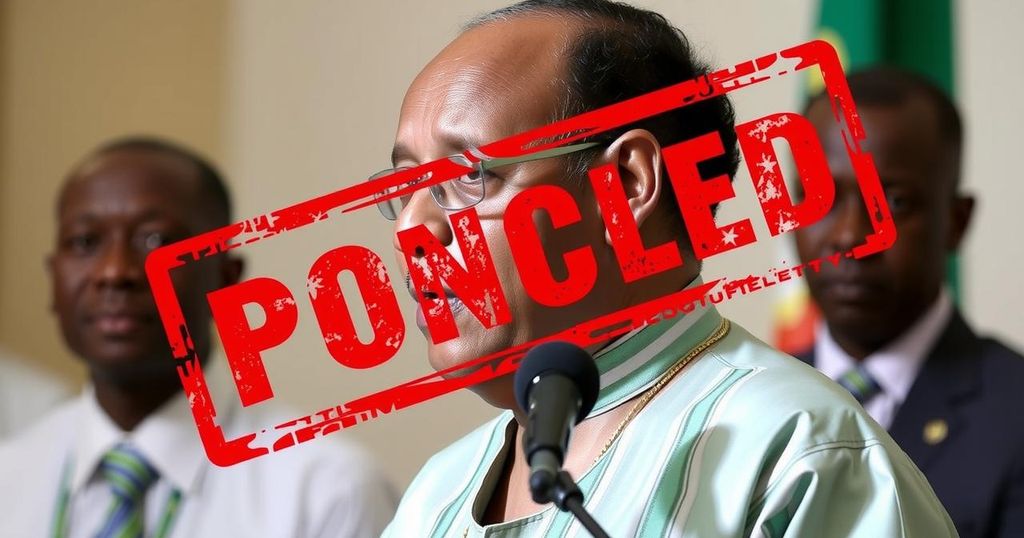Togo Reschedules Senate Elections Amid Political Tensions

Togo has rescheduled its first senatorial elections to February 15, allowing political groups more time for preparation. Campaigning begins January 30, amidst criticism of a new constitution that has led to opposition parties, including the ANC, announcing a boycott. The Senate, officially created in 2002, remains inactive, with this election seen as pivotal to the ongoing political discourse in the country.
Togo has postponed its inaugural senatorial elections to February 15, as announced by a presidential decree released on Friday evening. The delay of two weeks aims to facilitate better organization among political actors. Official campaigning is set to commence on January 30. These elections represent a critical step in realizing a new constitution, which has faced significant criticism from opposition parties and civil society organizations. Although several political entities requested the postponement to have additional time for candidate registration, the National Alliance for Change (ANC), one of the prominent opposition factions, has declared its intention to boycott the elections, perceiving them as part of a “constitutional coup d’etat.”
The Senate, officially established through a constitutional revision in 2002, remains non-functional as it has yet to convene. It will comprise 61 members, with 41 members elected by regional and municipal councillors, and the remaining senators appointed by the president of the Council of Ministers. The new constitution transitions from a direct presidential election system to a parliamentary system, which many critics argue is a strategy for President Faure Gnassingbe to maintain power indefinitely. President Gnassingbe leads the ruling party, UNIR, which secured 108 out of 113 seats in the legislative elections held in April 2024. He has governed Togo since 2005, following the long tenure of his father, who ruled for 38 years.
The political landscape in Togo has undergone significant changes in recent years, particularly with the introduction of a new constitution and the establishment of a Senate. The delayed elections are noteworthy as they signal the ongoing tensions between the ruling government and opposition parties over governance and political representation. The new constitutional framework, while aimed at reform, has been met with resistance and accusations of undermining democracy, especially among established opposition groups who view these moves as efforts to entrench power rather than foster democratic processes.
The postponement of Togo’s senatorial elections reflects the complexities of the nation’s political environment, marked by heightened tensions and competing demands from various political actors. As the country moves toward these critical elections, the response from the opposition and the subsequent impact on Togo’s democratic progression will be crucial to monitor. The elections, transitioning under a new constitutional framework designed to reshape governance in Togo, carry significant implications for President Gnassingbe’s administration and the broader quest for democratic reform in the region.
Original Source: www.barrons.com







